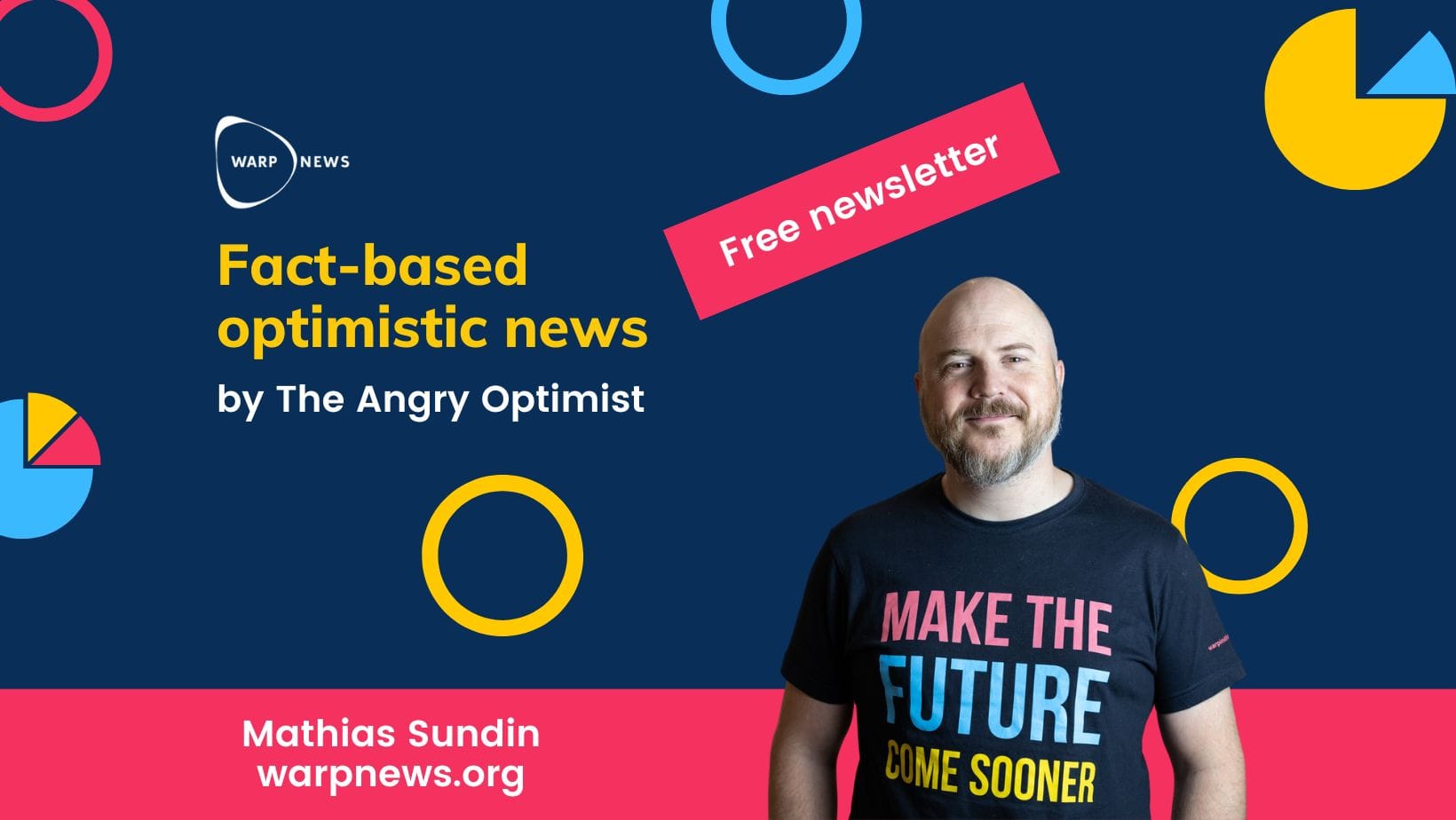
💡 Warp News #179
An extinct frog is back from the dead, investment in Elon Musk's founded school, and our mission to change humanity.
Share this story!
🌎 Help us change humanity's mindset
Value shifts are an extremely powerful tool for changing the world.
A change in values affects not only those of us living now, but also all future generations.
We want to bring about a value shift in humanity. Where most people feel hopeful about the future, instead of having a pessimistic view.
With such a mindset, more ideas will be born and become research, products, services, companies, organizations, and values.
Progress.
Value shifts can be achieved by small groups. These people are the ones who get the ball rolling.
Are you one of these, or do you want to support us who have started rolling the ball?
Then become a Warp Premium Supporter. Until the end of March, we are running a campaign: 70 percent discount, $30 for the first year. (The regular price is $100.)
The offer is only valid until March 31st.
This is what a Premium Supporter wrote after I sent out the article yesterday:
"The shift in mindset you describe is exactly the effect you and Warp have had on me in recent years."
His email made me very happy and proud.
Below, directly in the newsletter, you will find an article I have written about value shifts and our mission.
If you want to find this week's news, simply scroll further down in the newsletter.
Mathias Sundin
The Angry Optimist
Please forward the newsletter to your friends. Sign up here for a weekly dose of fact-based optimistic news.
💡 A new mindset for humanity can impact billions of people now and in the future
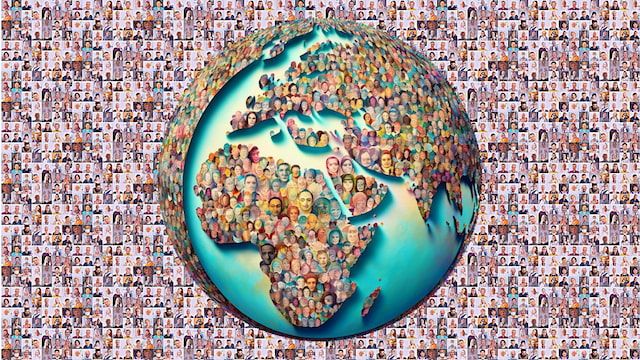
You know the saying: We do not inherit the earth from our ancestors. We borrow it from our children.
A longtermist would say: We do not inherit the earth from our ancestors. We borrow it from our great-great-great-great-great-great-great-great-great-great-great-great-great-grandchildren.
William MacAskill's book, What We Owe The Future, is the bible of 'longtermism'.
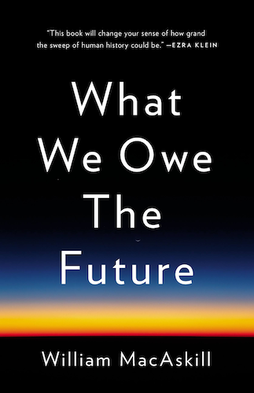
Longtermism is a philosophy that prioritizes the long-term consequences of our actions and decisions. We're talking thousands, even millions of years.
In his book, there is a simple but extremely powerful idea:
A change in values affects not only us who are living now, but all future generations.
A change in values affects many future generations
The abolition of slavery came from a change in values. When slavery was widely accepted, millions of people were captured and enslaved. When society's values changed, it was abolished.
The abolition affected all the slaves who then became free. But not only that. It affected all future generations where millions of people avoided living as slaves. It still affects a large number of people today who would have lived as slaves if values had not changed in the 1800s.
Just over a hundred years ago, women in Sweden were allowed to vote for the first time. It was an improvement for those who lived then, but it has impacted every Swedish woman since then.
Support for same-sex marriage in the United States has gone from 27 percent in 1996 to 71 percent in 2022. In 2004, Massachusetts became the first state to allow such marriages. Soon after, other states followed, and in 2015, the Supreme Court ruled that it applied to the entire US.
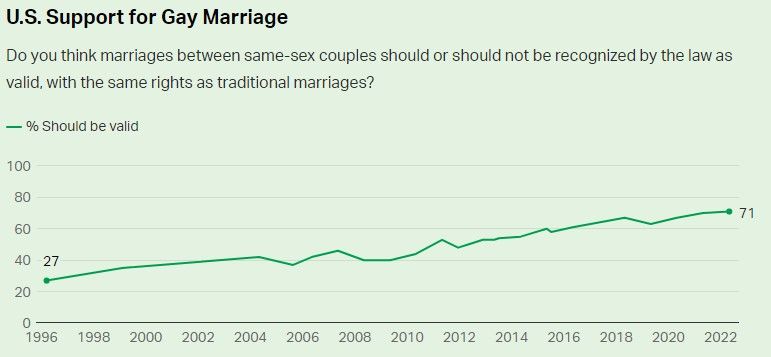
In 2015, all homosexuals who wanted to get married could do so, which was an improvement for them. But the change in values also applies to all homosexuals who want to get married today, tomorrow, next year, the next decade, or the next century.
A global change in values affects hundreds of billions of people
If a value changes for all or a very large part of humanity, it does not only affect the eight billion people living today. It affects all these eight billion people's children, their grandchildren, their great-grandchildren, and so on.
Tens of billions of people. Maybe hundreds of billions of people.
New values around optimism
If we want to create a better world, it is worth investing in a change in values.
Imagine if we could create a change in values around optimism. If many more people saw the future optimistically.
The future is created by optimists; it's not just a catchy slogan on our t-shirts. It happens to be true.
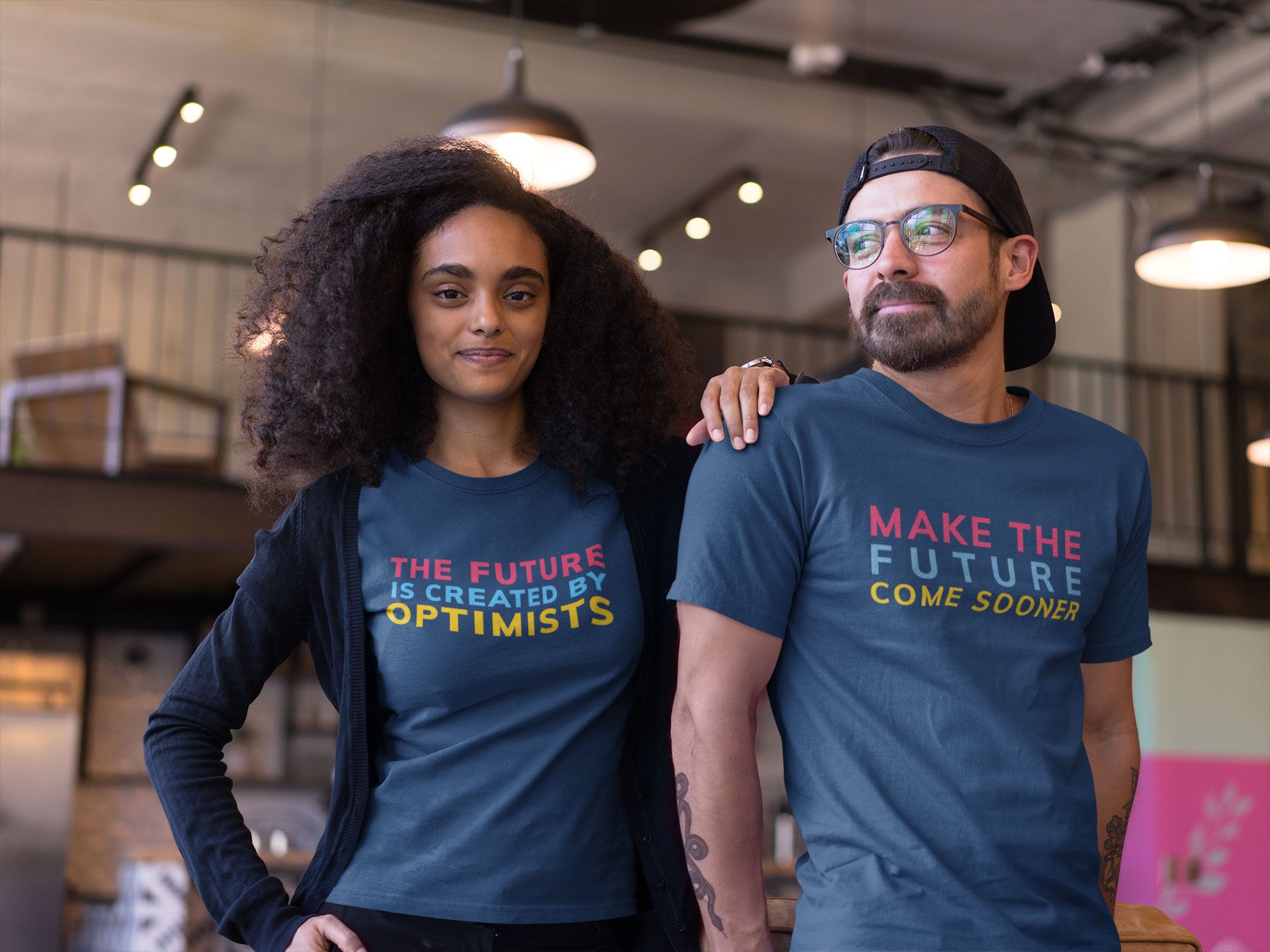
Kevin Kelly explains why in The Case for Optimism:
It is extremely difficult to create a desirable future without first envisioning it. To imagine is really the first step in creating anything. Therefore an essential chore for making a future we want to live in, is to imagine what it is like and how we get there.
He continues:
On the surface, an optimistic belief might seem no more valid than the stance of pessimism. But the deep history of new ideas makes it very clear that the optimistic stance of believing something is possible is a requirement to make anything new real, and is thus more powerful than pessimism. In the long run, optimists shape the future.
Make the future come sooner
If we can increase optimism about the future, many more people will come up with ideas for a better world. Some of these ideas will be turned into research, products, services, companies, organizations, and values.
Some of them will fail, but many will have a small but positive impact on the world. A few will have a significant impact on all of humanity.
Together, all these new ideas will have a positive impact on humanity, life on Earth (and other places we choose to live).
With more optimism and hope for the future, we will get to experience these things earlier. And ideas that may never have been born otherwise will see the light of day.
Imagine
Imagine if the value around slavery had changed a hundred years earlier. How many more people would have been spared from living and dying as slaves.
Imagine if everyone had gotten the right to vote five hundred years earlier. Democracy is the strongest force for prosperity and a better society that we have invented. How much better would the world have been if that change in values had come earlier and reached many more people.
Imagine if the values around homosexuality had changed much earlier. So many who had been spared from hiding their love in the closet and being subject to threats, hate, and persecution.
You may say I'm a dreamer
But I'm not the only one
I hope someday you'll join us
And the world will be as one
- John Lennon
Our mission
That is our mission. To make the future come sooner by bringing about a shift in values in humanity. So that pessimists, not optimists, are seen as naive.
The good news is that shifts in values can be achieved by a small group. MacCaskill shows in his book how a few people played a significant role in initiating the shift in values that led to the abolition of slavery.
If we succeed in creating a mind-shift for humanity, it will not only affect us who are living here on earth right now, but all generations that follow us.
Never doubt that a small group of thoughtful, committed citizens can change the world; indeed, it's the only thing that ever has.
- Margaret Mead
Mathias Sundin
The Angry Optimist
Help us achieve this mission. Become a Warp Premium Supporter. Until the end of March, we are running a campaign: 70 percent discount, $30 for the first year. (The regular price is $100.)
The offer is only valid until March 31st.
Fact-based optimistic news of the week
🚘 Internal combustion engine car sales peaked in 2017
Global auto sales rebound, but internal combustion engine (ICE) vehicles may never return to pre-pandemic levels. Electric vehicle adoption is accelerating in China, Europe, and the US, indicating a significant shift toward a sustainable future.
🧑🦯 Be My Eyes introduces AI app to help the visually impaired
Be My Eyes' new AI Virtual Volunteer brings instant visual help, making daily tasks easier and boosting independence for visually impaired users.
♻️ Plastic wrap without plastic
The Great Wrap, a company founded in Australia, has designed a plastic wrap which actually decomposes in nature without harming it.
🧑🏫 OSV invests in Synthesis School, cultivating tomorrow's STEM leaders
Founded by Elon Musk and Joshua Dahn, Synthesis prepares students to solve complex problems, advancing human civilization one bright mind at a time.
💚 Beavers naturally restore wetlands
By using logs, rocks and mud to build dams in rivers, beavers can restore wetlands naturally.
🐸 This frog is leapfrogging back
Miraculous comeback of harlequin frogs offers hope for other "extinct" species. Scientists discover the resurgence of species previously thought to be lost forever.
💔 AI predictions can improve chances of survival after cardiac arrest
Researchers at the University of Gothenburg have developed an AI that supports doctors in making difficult decisions for cardiac arrest cases.
🌡️ Revolutionary room-temperature superconductor paves way for efficient energy grids and high-speed transportation
Scientists achieve a groundbreaking breakthrough in room temperature superconductivity, opening the door for the development of ultra-efficient energy grids.
🥤 Nanoplastics may not be as harmful as we thought
A study shows that nanoplastics are not as dangerous for plankton as we thought. The plastics break down faster than expected.
Become a Warp Premium Supporter. Until the end of March, we are running a campaign: 70 percent discount, $30 for the first year. (The regular price is $100.)
The offer is only valid until March 31st.
By becoming a premium supporter, you help in the creation and sharing of fact-based optimistic news all over the world.
